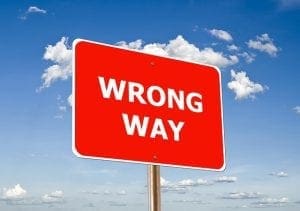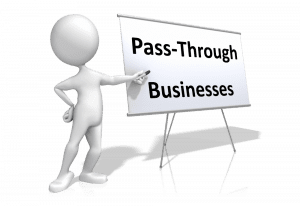In general, the answer is yes; your trust can own your business after you die. But taking a deeper look into this matter, some factors may affect your individual situation. Both the type of business you own (LLC, Partnership, corporation, sole proprietorship), as well as how your business is currently managed can determine how the trust obtains ownership and continues operations after you pass. We’ll explore these determining factors here:

Once the trust has obtained ownership of your business, there are factors that affect how it will be managed after you are gone. The first factor is the type of business that has been transferred (which we explored above). The other is the way the business was managed prior to the transfer of ownership.

As is the theme with trust transfers, the terms will determine whether income is distributed to beneficiaries. The trust is entitled to receive income or distribute profit distributions to owners or stockholders.
In the case that your business is taxed as an S corporation, there are unique circumstances under which someone can own the S corporation after your death. Prior to transferring ownershipof trust assets, consult a qualified attorney or financial professional.
As discussed, there are many factors to consider and navigate when transferring business ownership before you die. Overall, it depends heavily on the type of business you are operating, as well as how it is currently being managed. Therefore, it’s a great idea to consult with professionals to properly consider every factor and complete the transfer of ownership with confidence. It can be daunting, but Anderson, Dorn & Rader is here to help!
Contact Anderson, Dorn & Rader, the trusted team of Nevada Wealth Counselors, to properly transfer ownership of your business before you pass.
 When you are caught up in your day-to-day activities it can be difficult to take a step back and look at the bigger picture. This is certainly true for a small business owner because it takes so much time and energy to run your business successfully.
When you are caught up in your day-to-day activities it can be difficult to take a step back and look at the bigger picture. This is certainly true for a small business owner because it takes so much time and energy to run your business successfully.
Retirement and estate planning involve some complexities for everyone, but when you are a small business owner you have added issues to consider.
When you work for a company you can simply put in your notice and accept your plaque as you walk out the door. On the other hand, when you are the owner of the business you must consider business succession strategies.
The sooner you determine how you want to exit, the better. Your exit strategy might affect the decisions you make every day. For example, if your intention is to pass the business along to a family member, you may be inclined to invest money into the infrastructure. If you are going to close the business entirely or sell it, you may focus on maximizing current revenue above all else.
Each situation is going to be unique. The best way to explore your options when it comes to small business succession planning would be to arrange for a consultation with an estate planning lawyer who has a background assisting business people.
Building a business may be your life’s work. It is important to make sure that you are comfortable with how you will be exiting.
With the above in mind, consider a partner in a small business. The value of the business may be the largest asset that this individual has to pass along to his or her family. However, there may well be multiple heirs, so this value must be divided somehow.
The family could sell the share in the business and split the proceeds, but this leaves a number of issues. Do the remaining partners have the cash to buy out the family? Or does the family sell the share of the business to a new investor? If the family tries to sell a fractional share of the business, they will not likely obtain the full value of the fractional share! Not to mention that the surviving partners would not necessarily embrace a new investor.
This type of situation can be addressed through a properly drafted operating agreement. Alternatively, this can be addressed through the execution of a buy-sell agreement called a cross-purchase plan.
In a cross-purchase plan, the value (or the methodology of the value) of the business interests is agreed-upon by the partners. The partners then purchase life insurance coverage on one another with the proceeds equaling the value of the business interests. Under the terms of the agreement, the remaining partners purchase the share that was owned by the deceased partner from his or her family with the combined insurance policy proceeds. In this manner, the family has liquidity while the surviving partners retain control.
A lot of people get their first exposure to retirement planning on the job. Most companies will give you the opportunity to participate in a group 401(k) retirement savings plan, and many of them will actually match your contributions up to a particular percentage. Those who contribute into a 401(k) account as employees fund their retirement with pre-tax earnings. The participant will eventually pay taxes on the withdrawals, but those taxes are deferred for a very long time.
When you work for yourself, you must make different arrangements. It is possible to open your own 401(k) account as a self-employed individual, and those who are serious about being able to retire in comfort should certainly consider doing so. As a self-employed individual with a 401(k) account, you have to make deposits on your own, but they are tax-deferred in the same manner. Most small business owners also look at other retirement planning options, such as SEP IRAs.
With nearly every retirement account, you must leave the account untouched until you are at least 59.5 years of age if you do not want to pay penalties. Once you turn 59.5, you can begin to take distributions in a penalty-free manner, but you don’t have to begin taking distributions until you are 70.5 years of age.
Retirement planning, business succession planning, and estate planning should all be addressed simultaneously to ensure your overall financial goals remain intact for you and your family.
Our Reno estate planning lawyers are holding some free Webinars in the near future, and you can click this link to register for the session that works for you.
 It is relatively easy to understand how important asset protection planning for Nevada residents can be. Most people want to make sure their assets are protected, including real estate, investments, business interests, and even personal property. Just consider the costs of malpractice, business (E&O), and other forms of liability insurance, which are rapidly increasing. It is certainly important to be preemptive in protecting your assets from potential creditors, whether that is through an insurance policy, homestead, or other asset protection plan. What may be even more important is understanding the most common mistakes in asset protection that Nevada residents should avoid.
It is relatively easy to understand how important asset protection planning for Nevada residents can be. Most people want to make sure their assets are protected, including real estate, investments, business interests, and even personal property. Just consider the costs of malpractice, business (E&O), and other forms of liability insurance, which are rapidly increasing. It is certainly important to be preemptive in protecting your assets from potential creditors, whether that is through an insurance policy, homestead, or other asset protection plan. What may be even more important is understanding the most common mistakes in asset protection that Nevada residents should avoid.
One common mistake that many people make is assuming that there is something wrong with creating a plan to protect your assets. Many people feel like they are "hiding assets" or irresponsibly "sheltering" their estate from the reach of creditors. That simply is not true. We are all free to structure our assets in the most advantageous way available, as long as we do so properly and in accordance with the law. The only time that the issue of fraud is raised is when the purpose of an asset protection plan is solely to hinder, delay, or defraud creditors from collecting valid debts. The key is to create your asset protection plan before the creditors' claims arise.
Plan in advance! Another mistake that some individuals make is not taking action to protect their assets until after a problem has arisen. If you've already been sued (or if you know you're about to be sued), it's likely too late to effectively create a plan. The best and most effective asset protection planning is accomplished long before any creditor claims arise. The best time to start an asset protection plan is when you are solvent and not currently facing any threats from existing creditors. The purpose of asset protection planning is to protect from potential future creditors. The sooner you start planning, the more options will be available to you.
One aspect of asset protection planning that is difficult for most people is making a proper determination of who is likely to be a potential creditor. Those who are able to make this determination are better able to make an effective asset protection plan. It is easier to plan when you know exactly what you are planning for. In other words, if you can implement a strategy to protect against certain claims you can more easily limit your exposure to that liability. Some common ways to avoid liability, especially for business owners, include:
You cannot rely on an asset protection plan someone else used. Friends may be well-intentioned, but one size definitely does not fit all when it comes to asset protection planning. Not every protection strategy will work in every case. Any estate planning attorney will tell you – an asset protection plan needs to be developed on a case by case basis. Some people can effectively create an asset protection plan by taking advantage of legal protections under homestead, ERISA, business, and other federal and local laws; still others may need a more complex asset protection trust to deal with potential creditors. Individual needs must be carefully considered when choosing your planning options, so don't use a boilerplate plan and hope that you will be protected. Most likely, you will not.
Many clients have the same misconception, that any type of trust can provide asset protection. That is not the case. First, revocable living trusts do not provide protection for individuals who created the trust simply for that purpose. It is important to remember that, in most states, when the person who has funded the trust is a potential beneficiary, then the assets may not be protected from creditors. However, a properly drafted revocable living trust may be able to add asset protection for surviving spouses and/or other beneficiaries. An irrevocable trust can only protect property that is transferred to the trust as long as there is no evidence of a fraudulent conveyance, and a statutory period of time has passed before a creditor claim arises. Foreign offshore trust accounts have come under scrutiny in United States Courts, recently. Very special care must be given when implementing an asset protection plan that includes an offshore account.
A part of asset protection planning necessarily includes consideration of possible inheritances from relatives, a factor that is often overlooked. Those inheritances must be structured, as well, in order to provide maximum flexibility, as well as, protection against creditors and divorce. An estate plan is a way for you to prepare yourself and your family for what happens after you pass away. An appropriate estate plan can also give you an opportunity to plan for unexpected incapacity. Regardless of how few assets you may have, planning for your family's future is a necessity for everyone.
If you have questions regarding mistakes in asset protection, or any other asset protection planning needs, please contact Anderson, Dorn & Rader, Ltd., either online or by calling us at (775) 823-9455.
 Pass through businesses are the most common form of business entity utilized by closely-held and family-owned businesses. The number of pass-through entities has continuously increased over the last 30 years, while the number of traditional C corporations has steadily decreased. Currently, pass-through businesses make up approximately 94% of all businesses in the United States. Additionally, pass-through businesses earn more than 64% of all net business income, employing more than half of all workers in the private sector.
Pass through businesses are the most common form of business entity utilized by closely-held and family-owned businesses. The number of pass-through entities has continuously increased over the last 30 years, while the number of traditional C corporations has steadily decreased. Currently, pass-through businesses make up approximately 94% of all businesses in the United States. Additionally, pass-through businesses earn more than 64% of all net business income, employing more than half of all workers in the private sector.
Basic types of pass-through business entities
A sole proprietorship is an unincorporated business, owned by a single individual, which reports its income on schedule C of the 1040 tax form. Similarly, a partnership is an unincorporated business with multiple owners, either individuals or other businesses. Limited-liability companies ("LLCs") are businesses that have limited liability like a traditional C corporation. An S Corporation is a domestic corporation that can only be owned by U.S. Citizens and can have up to 100 shareholders. It cannot be owned by other corporations or partnerships.
What makes a business "pass-through?"
These entities are called pass-through businesses because their profits (or losses) are passed directly through the business to the owners and are taxed on the owners’ individual income tax returns. On the other hand, a traditional C corporation pays taxes at the entity level, through the corporate income tax. The owners or shareholders, also pay taxes on the same income when they receive a dividend or sell their stock and realize a capital gain. Another difference between pass-through businesses and traditional corporations is that owners pay the full tax on their business income each year, as the income is being earned. Whereas, the owners of a traditional corporation are allowed to defer taxation under certain situations.
Liability for pass-through businesses
While most LLCs are taxed as partnerships, an LLC can elect to be taxed as a corporation. True partnerships are very similar to LLCs, with one important difference -- a partnership must have at least one partner with unlimited liability for the partnership’s actions and unpaid liabilities. In general partnerships, on the other hand, all members have unlimited liability. For this reason, LLCs have replaced most partnerships, as the chosen business entity when forming a pass-through business.
How S corporations work
A S corporation is most often treated like an LLC for the purpose of income taxes. However, the payroll taxes imposed on an S corporation are usually lower than other companies. After payment of a reasonable salary is made to a shareholder or an employee of an S corporation, any additional distributions to that employee are not be subject to payroll taxes or the self-employment tax. On the other hand, the ordinary income of a working LLC member or partner is generally subject to the self-employment tax.
If you are starting a business and have questions regarding which entity structure is best for you, please contact Jerry Dorn at Anderson, Dorn & Rader, Ltd., either online or by calling us at (775) 823-9455.
 Many businesspersons are so focused on growing their businesses that they do not consider the potential consequences of divorce. Whether the co-founders divorce each other, or one of the founders gets divorced, if the possibility of divorce is not acknowledged and planned for properly, the business can suffer terrible consequences. There can be serious family-owned business issues following divorce, which, if you plan for them, can be eliminated.
Many businesspersons are so focused on growing their businesses that they do not consider the potential consequences of divorce. Whether the co-founders divorce each other, or one of the founders gets divorced, if the possibility of divorce is not acknowledged and planned for properly, the business can suffer terrible consequences. There can be serious family-owned business issues following divorce, which, if you plan for them, can be eliminated.
Why planning for divorce is important
I bet if you were told by a professional advisor that the transaction you were about to enter into resulted in a complete loss of business assets 50% of the time, you would undoubtedly insist on putting the deal in writing. Why? To protect yourself against this significant business risk. Although the statistics show that 50% or all marriages end in divorce, married business owners rarely create a plan that addresses divorce or separation. Considering the potential harm that divorce can do to a business, it is surprising to me how often business owners are unprepared.
Dividing the business property can be a nightmare
One of the most difficult issues that arises when business partners divorce is trying to put a value on the business. Valuing the business is required in order to determine the value of each spouse's interest in the business. Like dividing other assets during a divorce, each spouse's interest in the business must be divided as well. If the business is started after the marriage in a community property like Nevada or California, it must be divided evenly in the event of a divorce. If one spouse enters the marriage with a business in a community property state, any appreciation in the value of the business will generally need to be divided evenly in the event of a divorce. This is true in either case even if one spouse did not officially contribute to or work for the business. A spouse's interest in the business may be satisfied with other marital assets equal in value to the spouse's interest in the business, or the spouse's interest in the business directly. The process of establishing a spouse's interest in the business and arriving at an agreed upon value is a long, emotionally painful and expensive process that can have a severe negative impact on the operations of the business.
Plan ahead and put it in writing!
Whether you use a prenuptial agreement, a shareholder agreement or a buy-sell agreement, you need a written contract that describes how the interests of the co-owners will be established, bought, sold or valued and divided in a divorce. If these considerations are not memorialized in a writing, there will inevitably be a legal dispute over the value of the respective parties' interests in the business. This type of legal fight could potentially last two years or more. It could also mean the end of your business.
The business may be the root of the marital problems
To make matters worse, the business may actually be the root of the problem that caused the marriage to fall apart. Whenever that is the case, emotions complicate the issues and make it difficult for spouses to reach an agreement of valuing the business. Spouses, as co-owners, often build resentment over the investments of time, effort, and money that were made in the family business. The sacrifices that were made by the co-owners play a bigger role in valuing the business, which cannot be quantified. When the business itself is a source of conflict, the co-owners become contentious and it is nearly impossible to reach an agreement. This is where having some type of agreement, already in place, can make the divorce process less difficult, as it relates to the business.
If you have questions regarding divorce issues, or any other family-owned business planning issues, please contact Anderson, Dorn & Rader, Ltd., either online or by calling us at (775) 823-9455.




